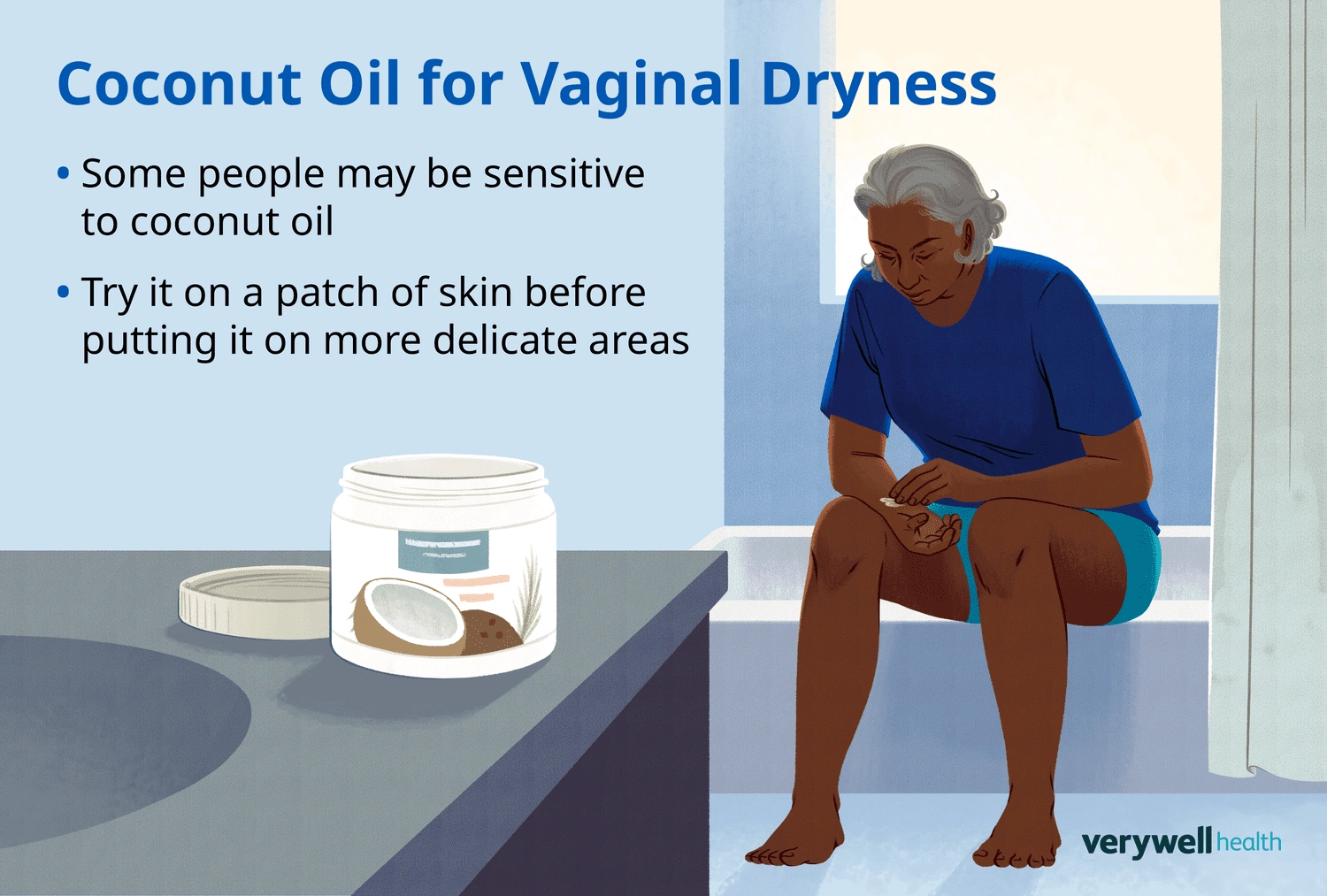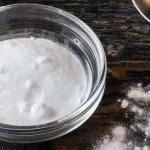
Why So Many Swear By It
Let me guess: There’s a jar of coconut oil lurking in your pantry—and maybe even on your nightstand. I get it. Coconut oil looks so innocent and pure, doesn’t it? It smells good, feels rich, and hey, if it works for dry skin, why shouldn’t it work “down there” too? That’s what I thought the first time I read about it as a personal lubricant, especially for those moments of dryness that come with stress, hormones, or just life being…life.
But… can coconut oil cause yeast infection? Quick heads up: the answer is more complex than “yes” or “no.” And I wish someone had told me this before my own experiment ended with confusion (and a slightly itchy, not-so-happy experience).
Moisturizer or Mischief-Maker?
It’s so easy to think, “Natural means safe, right?” I mean, even my grandma swore by coconut oil for everything from cooking to sunburns. Truth is, coconut oil can be pretty great for the skin. But vaginal skin isn’t like your elbows or heels— it’s this delicate little ecosystem, full of good bacteria and with a very specific acidic pH that keeps everything humming along.
So, is it a wellness win or does it secretly mess things up? Let’s look at what research and actual people have found.
What’s the Science Say?
If you love a bit of science like I do—let’s geek out for a sec. Cold-pressed coconut oil does have antifungal properties. Seriously. There’s in-lab research showing it destroys Candida albicans (aka the #1 yeast infection culprit), sometimes even better than the usual antifungal meds (study here). People have literally tested this stuff in petri dishes, and candida just… melts away.
But petri dishes aren’t vaginas. (Who wants that job description, anyway?) When it comes to real-life human bodies, things get fuzzy. There are studies—and even a few dog studies, weirdly—where coconut oil applied outside the body seems pretty safe and effective. But not a ton of research on what actually happens inside the vagina, especially over time (according to Healthline).
How Does It Compare—Table Style
| Coconut Oil | Water-Based Lube | Silicone-Based Lube | |
|---|---|---|---|
| Moisturizing | High, lasts longer | Short-lived, quick refresh | Very long-lasting |
| pH Impact | Alkaline (can disrupt vaginal acidity) | Neutral (usually safe for pH) | Neutral, less irritation |
| Condom Safe? | No! Breaks down latex | Yes | Yes |
| Infection Risk | Can increase if prone to yeast | Low (as long as no harsh chemicals) | Low (watch for rare allergies) |
Anecdote Moment
I tried coconut oil after some friends raved about it. First night—lovely. Second night—still loving it. By day four… uh, things felt a bit off—redness and itching crept in. Bummed but not surprised, because I get yeast infections just looking at a sugar packet.
The Hidden Risk No One Warns You About
We have to talk about the biofilm phenomenon. I know, it sounds like a sci-fi movie, but hear me out. When you introduce oil, especially often, it can coat the vaginal lining. This doesn’t just trap moisture (the good kind)…it can also trap bad stuff, letting yeast and bacteria hang out longer than you’d like (River Place OB/GYN insight). Suddenly, you’re not relieving dryness—you’re potentially rolling out the welcome mat for a yeast infection.
In plain English? Even if coconut oil kills fungus in the lab, it can, in your body, upset that careful balance and let yeast overgrow—especially if you’re someone who gets yeast infections easily. And if you happen to have recurrent Coconut oil for vaginal infection already, that risk sneaks even higher.
Okay, But Does It Cause Yeast Infections?
Here’s the tricky part about the question “can coconut oil cause yeast infection”—for some, it doesn’t. For others… it totally can. Experts point to a few reasons:
- Coconut oil is alkaline. The vagina wants to be acidic. Change that, and yeast can take over (Vinmec explainer).
- It creates a barrier. Oil can literally lock in moisture and trap bad bacteria or yeast, letting them throw an unwanted party.
- Some folks are just prone. If you deal with Coconut oil for vaginal itching (or other symptoms) on the regular, you already know your microbiome is sensitive.
Maybe you’ve never had a yeast infection and coconut oil’s been your BFF for years. But maybe, like me, you ‘roll the dice’ and end up with regret.
But Wait—Doesn’t It Have Antifungal Powers?
Yep. Coconut oil is rich in caprylic acid and lauric acid—powerful antifungals. Lab studies confirm: pure coconut oil kills off Candida species fast (see PubMed article).
It even helps medicine work better—one cool study found that pairing coconut oil with fluconazole, a common yeast treatment, made the drug more effective… especially against super-resistant yeast strains (antifungal synergy details). So, the potential is there.
But—there’s that little catch: those wins are in controlled settings, not real, sometimes stressed-out, sometimes hormonally wild human bodies with busy lives.
Why Some People Get Away With It
You might be wondering: “If coconut oil is risky, why do so many people love it?” Simple answer: everyone’s body is different. Factors like hormones, stress, recent antibiotics, and even what you had for breakfast can shift the vaginal balance.
I know people who swear by coconut oil and have never had a problem. A friend of mine (let’s call her Mia) uses coconut oil during menopause for dryness after her doctor gave her the green light. For her? Never an issue. She uses a pea-sized amount, maybe twice a week, and only buys plain, organic stuff with zero additives.
How To Try (If You Must)
Let’s say you’re still tempted. Maybe other lubes sting, or you want something natural, or you just love how it feels. If you’re going to experiment, here’s how to reduce the risk:
- Keep it external. Moisturize the outer vulva, not inside the vagina.
- Patch test first. Allergies to coconut are real (rare, but real!).
- Zero additives only. Avoid floral scents, sugars, or blends.
- Avoid if you use condoms. Oil and latex are a breakup waiting to happen.
- Listen to your body. Signs of Coconut oil for vaginal itching or extra discharge? Pause and reassess.
And for the love of coffee, don’t use anything from your kitchen as a go-to solution for infection. If you suspect an infection, get it checked out. Quick and easy.
Times To Steer Clear (For Sure)
Here’s when you should skip coconut oil—no matter how lovely it smells:
- You have recurring yeast infections or Coconut oil for vaginal infection
- You’re using condoms or dental dams (oil weakens latex… surprise pregnancies and STIs are not fun)
- You’re pregnant or immunocompromised (talk to your doc before trying home remedies—always)
- You’re treating a medical condition with prescription treatments. Don’t mix remedies unless cleared by your provider.
A friend of mine with a new baby and postpartum dryness learned the hard way. She tried coconut oil for instant relief. A few days later? Full-blown infection and another doctor’s appointment. “TMI, but wish someone had warned me!” she says—so here I am, passing that real-life warning along to you.
Still Curious About Natural Options?
There are so many gentle, pH-balanced products out there for dryness and lubrication—and they’re designed for your parts, unlike whatever’s in the grocery aisle. If you’re stuck, seek out a pelvic health expert, a gynecologist, or even resources online focused on vaginal wellness.
And again, if the root problem is ongoing—like, you’re constantly searching for relief beyond the odd dry day—it’s time to chat with a professional. It could be hormones, medications, allergies, or something more complex.
So, What’s the Takeaway?
Let’s bring it back to the big question: Can coconut oil cause yeast infection?
Sometimes, yes. Especially if you’re prone to them or use coconut oil all the time, or you’ve got that unlucky biology (like me!). For others, minimal, external use might be totally fine—maybe even soothing. Just remember the risks: disrupted pH, possible irritation, and the potential for yeast (and bacterial) overgrowth.
What do I wish someone had told me? That “natural” doesn’t always mean “risk-free.” And that there’s no shame in needing a little help with dryness, itching, or comfort. But seriously—don’t skip the science just because a remedy sounds cozy or your friend loves it.
If you’re curious—or if dryness or irritation is getting in the way of your life—explore gentle, tested solutions. And if you decide to try coconut oil, do a small test, watch for any hint of Coconut oil for vaginal itching or infection, and chat with your doctor.
Your body’s your own—treat it kindly, experiment wisely, and always trust your gut (and your vaginal instincts). Got questions or a story to share? Drop a comment—let’s keep this convo real and honest!


















Leave a Reply
You must be logged in to post a comment.